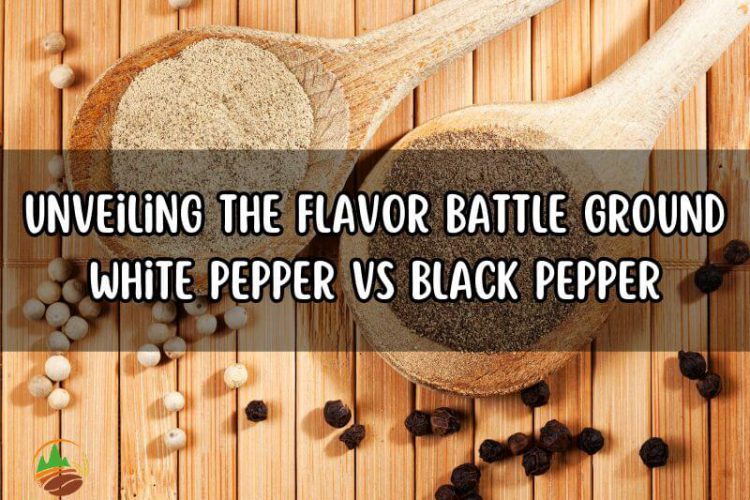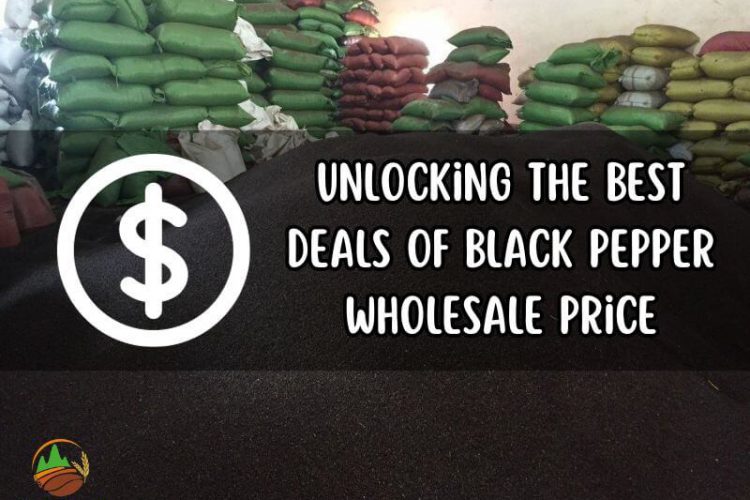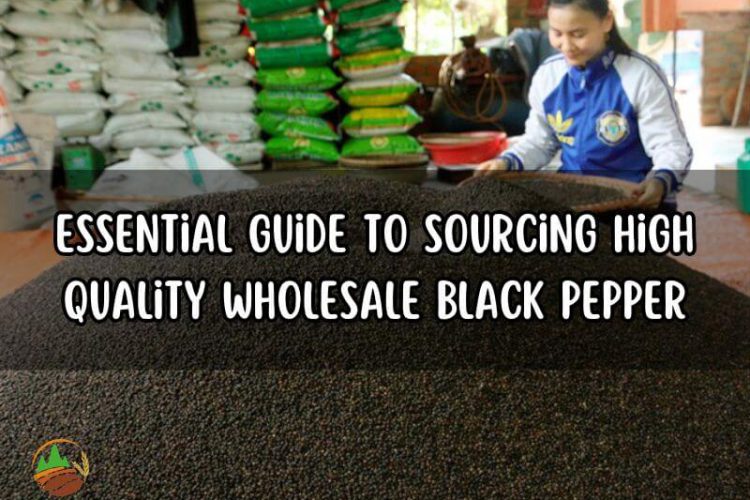Discover the untapped potential of Chinese Cinnamon in the wholesale market through this article. Gain valuable insights into the sourcing, quality, and profit opportunities this spice offers to seize an advantage in the competitive wholesale industry.
Table of contents
General information about Chinese Cinnamon
Chinese cinnamon is a type of spice extracted from the bark of the cinnamon tree (Cinnamomum cassia) that originates in China. Here are some pieces of information you should know about China cinnamon.
The growing region of Chinese Cinnamon
The main growing region for China cinnamon is southern and central China. Specifically, it is predominantly cultivated in provinces such as Guangxi, Guangdong, Yunnan, Hunan, and Jiangxi. These regions provide suitable climatic conditions and fertile soil for the cultivation of cinnamon trees.
The climate in these areas is characterized by a subtropical or tropical climate with abundant rainfall and high humidity, which is favorable for the growth of cinnamon trees. The specific geographic and environmental conditions in these regions contribute to the high quality and distinct flavor of Chinese cinnamon.
It’s worth noting that Chinese cinnamon is also grown in other countries, including Indonesia and Vietnam. However, China remains one of the major producers and exporters of cinnamon worldwide.

The production of Chinese Cinnamon compared to others
According to data provided by OEC, the annual production of cinnamon in China is estimated to be 4.2% of the global total, with cassia cinnamon accounting for 95% of total Indian cinnamon. Although it is included in the list of cinnamon varieties that are widely exported worldwide, Chinese cinnamon is still not popular among wholesalers and customers compared to Vietnamese cinnamon and Indonesian cinnamon.

The types of Chinese Cinnamon currently in the market
The variety known as “Cinnamomum cassia,” also referred to as China cinnamon or cassia cinnamon, dominates the market for cinnamon from China. Within the category of Chinese cinnamon (Cinnamomum cassia), there are further distinctions based on the quality and appearance of the cinnamon bark. The two main types of Chinese cinnamon found in the market are:
- Cassia Cinnamon Sticks: These are the dried, rolled-up bark of the Cinnamomum cassia tree. Cassia cinnamon sticks are dark brown in color and have a rougher texture compared to other cinnamon varieties. They are known for their strong, spicy flavor and are often used in cooking, baking, and brewing aromatic beverages.
- Cassia Cinnamon Powder: Cassia cinnamon bark is ground into a fine powder, which is commonly available for culinary use. Cassia cinnamon powder is reddish-brown in color and has a strong, aromatic flavor. It is used in a wide range of dishes, including desserts, drinks, and savory recipes.
Overall, in the market, you will commonly find Chinese cinnamon in the form of cassia cinnamon sticks or cassia cinnamon powder.

The differences between Chinese Cinnamon from other kinds of cinnamon in the market
China cinnamon and other kinds of cinnamon available in the market, such as Ceylon cinnamon, have several differences in terms of their origin, taste, aroma, appearance, and chemical composition. Here are some key distinctions:
- Taste: Chinese Cinnamon has a strong, pungent, and slightly sweet flavor compared to Ceylon cinnamon, which is milder, sweeter, and more delicate. The taste of China Cinnamon can be described as bold and intense.
- Aroma: Cinnamon in China has a robust, spicy aroma with hints of sweetness. On the other hand, Ceylon cinnamon has a more subtle and complex fragrance, often described as warm, citrusy, and floral.
- Appearance: Chinese Cinnamon typically consists of thicker and coarser bark compared to cinnamon Ceylon. The bark of Chinese Cinnamon tends to be darker, reddish-brown in color, while Ceylon cinnamon has a lighter, tan color and a thinner, flakier texture.
- Coumarin content: One significant chemical difference between Chinese Cinnamon and Ceylon cinnamon is their coumarin content. Coumarin is a naturally occurring compound that can be toxic in large amounts. Cinnamon from China contains higher levels of coumarin than Ceylon cinnamon. Therefore, consuming large quantities of China Cinnamon may have potential health risks associated with coumarin intake.
It’s worth noting that both Chinese Cinnamon and Ceylon cinnamon have been used for various culinary, medicinal, and aromatic purposes throughout history, and the choice between them often depends on personal preferences and the specific requirements of a recipe.

The great potential when importing Chinese Cinnamon
Importing Chinese cinnamon holds great potential for several reasons:
- Cinnamon products are abundant in China. China cinnamon can be imported in sticks, powder, essential oils, and extracts. This variety meets market needs.
- Quality and Flavor: China cinnamon (Cassia cinnamon) is known for its strong flavor and aroma. Its spicy flavor enhances many dishes and drinks. Chinese cinnamon can boost product flavor and attract cinnamon lovers.
- Cost-Effectiveness: China is a major cinnamon producer. Due to its availability and scale, China cinnamon can be cheaper to import. Wholesalers and customers looking for low prices may prefer cinnamon from China.
- Potential Market Growth: China cinnamon may not be as well known as the Vietnamese cinnamon or Indonesian cinnamon in some markets, but it offers growth and differentiation. By introducing Chinese cinnamon to wholesalers and customers, it can differentiate itself, diversify product offerings, and target a niche market.
- China’s cinnamon industry has a reliable supply chain and infrastructure. Importing China cinnamon reduces the risk of shortages and maintains wholesaler and customer availability.
Businesses can expand their product line, explore new markets, and capitalize on Chinese cinnamon’s unique benefits by recognizing its great potential.

The price of different types of Chinese Cinnamon
Below are the average prices of some types of China cinnamon and some factors affecting the price of Chinese cinnamon.
The average price of some types of Chinese Cinnamon
Here are approximate wholesale prices for some types of Chinese cinnamon in terms of USD per metric ton (MT):
- Cassia Cinnamon Sticks: The wholesale price for cassia cinnamon sticks can range from $2,000 to $4,000 per MT, depending on factors such as quality, grade, and quantity purchased.
- Cassia Cinnamon Powder: The wholesale price for cassia cinnamon powder can range from $1,500 to $3,000 per MT, depending on factors such as quality, grade, and quantity purchased.
Please note that these are rough estimates, and the actual wholesale prices can vary significantly depending on factors such as market conditions, region, and negotiation with suppliers. It’s always recommended to contact local suppliers or industry sources for the most up-to-date and accurate wholesale pricing information for specific types of Chinese cinnamon.

The factors affecting the price of Chinese Cinnamon
Many factors affect cinnamon prices in China. Key pricing factors include:
- Grade and Quality: Quality and grade determine cinnamon in China prices. Cinnamon that is free of impurities has a strong aroma, and a desirable flavor profile and usually costs more than lower-quality cinnamon.
- Demand and Supply: Supply and demand affect cinnamon prices. Chinese cinnamon prices rise when demand exceeds supply. Supply exceeding demand may lower prices. Harvest yields, weather, and global market trends affect supply-demand equilibrium.
- Government Regulations: Government regulations can affect Chinese cinnamon prices. Tariffs, taxes, and trade agreements affect production, distribution, and international trade costs. These policies affect cinnamon prices.
- Transportation Costs: The cost of transporting Chinese cinnamon from production to market can significantly affect its price. Fuel prices, infrastructure, distance, logistics, and international shipping fees affect transportation costs. Transportation costs can raise cinnamon prices.
By recognizing the great potential of importing Chinese cinnamon, businesses can explore new avenues, expand their product range, and tap into the unique qualities and advantages that Chinese cinnamon brings to the market.

How to find reliable Chinese Cinnamon suppliers
To find a reliable China cinnamon supplier, wholesalers should know about the types of cinnamon in China suppliers currently offering in the market, signs of scams when working with Chinese cinnamon suppliers, and some famous suppliers you can consider working with.
Types of Chinese Cinnamon suppliers in the market
In the market, you can find different types of cinnamon from China suppliers, including wholesalers and local suppliers. Here’s an overview of each type:
- Wholesalers: Wholesalers specialize in buying Chinese cinnamon in large quantities from producers, farmers, or distributors and then selling it to retailers, food manufacturers, and other businesses. They typically operate on a larger scale and can offer competitive pricing due to their ability to buy cinnamon in bulk.
- Local Suppliers: Local suppliers refer to smaller-scale suppliers that operate in specific regions or local markets. They may source Chinese cinnamon directly from farmers or local producers in their vicinity. Local suppliers often cater to local businesses, retailers, and consumers. They may focus on providing high-quality cinnamon products with a focus on local or artisanal production methods.
When sourcing Chinese cinnamon, businesses may consider working with wholesalers for larger quantities and competitive pricing or local suppliers for specialized or regional products. The choice between the two types of suppliers depends on factors such as the scale of the business, specific product requirements, pricing considerations, and the desired level of personalization or localization.

Signs of scams when working with Chinese Cinnamon suppliers
To protect yourself and your business, be aware of scams from cinnamon in China suppliers. Common symptoms include:
- Unbelievably low prices: A supplier selling Chinese cinnamon at prices far below the market average may be a red flag. Competitive pricing is good, but unusually low prices may indicate counterfeit or low-quality products or a supplier trying to scam buyers.
- Lack of business documentation: Legitimate suppliers should have business licenses, export licenses, and relevant certifications. If a supplier refuses to provide these documents, it may be illegitimate or non-compliant.
- Requests for upfront payments or unusual payment methods: Be wary if a supplier wants full payment upfront, especially if they won’t guarantee your payment. If a supplier requests payment through unconventional methods or third-party payment platforms without security or buyer protection, it may indicate a higher fraud risk.
- Inconsistent product quality or specifications: Receiving samples or initial shipments of Chinese cinnamon that differ significantly from the agreed-upon specifications or quality may indicate dishonesty or a bait-and-switch. Product quality inconsistencies should cast doubt on the supplier.
- Lack of references or negative reviews: A reputable supplier should provide references or customer testimonials upon request. If a supplier won’t provide references or has many negative reviews, be wary.
- Unreliable delivery: A supplier that consistently misses shipping deadlines, provides false tracking information or fails to resolve shipping issues may be unreliable or fraudulent.
- Lack of specific office address: A supplier without a specific office address is a red flag. If the supplier does not provide or send an accurate office address or only provides contact information online without verifying the physical location, it may be a red flag.
Due diligence, supplier verification, clear communication, and trustworthy business practices are essential. When working with Chinese cinnamon suppliers, samples, references, and background checks can reduce scam risk. To protect your interests, use secure payment methods and clear contracts.

Famous Chinese Cinnamon suppliers that wholesalers can work with
There are several well-known China cinnamon suppliers in the market that have established a reputation for their quality products and reliable services. Some of these suppliers include:
- Yunnan Spices: This Chinese cinnamon supplier is known for its quality. They supply Chinese cassia cinnamon sticks and powder. Yunnan Spices is known for its high-quality products in the wholesale spice market.
- Hong Yuan Cinnamon, based in Guangxi, China, is a reliable cinnamon supplier. They sell cinnamon sticks, powder, and oil. Hong Yuan Cinnamon’s global wholesalers appreciate its quality and customer service.
- Yantai Spices: Yantai Spices has been supplying wholesale cinnamon from China for years. They sell the cinnamon sticks, powder, and extract. Yantai Spices has reliable sourcing, strict quality control, and competitive pricing.
- Qingdao Hilda-Jingyi Trading Co., Ltd.: A reliable wholesaler of Chinese cinnamon and other spices. They sell cinnamon sticks and powder from reputable Chinese producers. Qingdao Hilda-Jingyi Trading Co., Ltd. supplies high-quality spices to wholesalers worldwide.
- Shaanxi Fuheng Biotechnology Company: Shaanxi Fuheng (FH) Biotechnology Co., Ltd. is a leading Chinese cinnamon and herbal extract supplier. They sell wholesale cinnamon bark extracts and powder from reliable Chinese cinnamon producers. Wholesalers trust Shaanxi Fuheng (FH) Biotechnology Co., Ltd. for quality and customer satisfaction.
Wholesalers should research, evaluate, and communicate with potential suppliers to find the best fit for their business needs.







